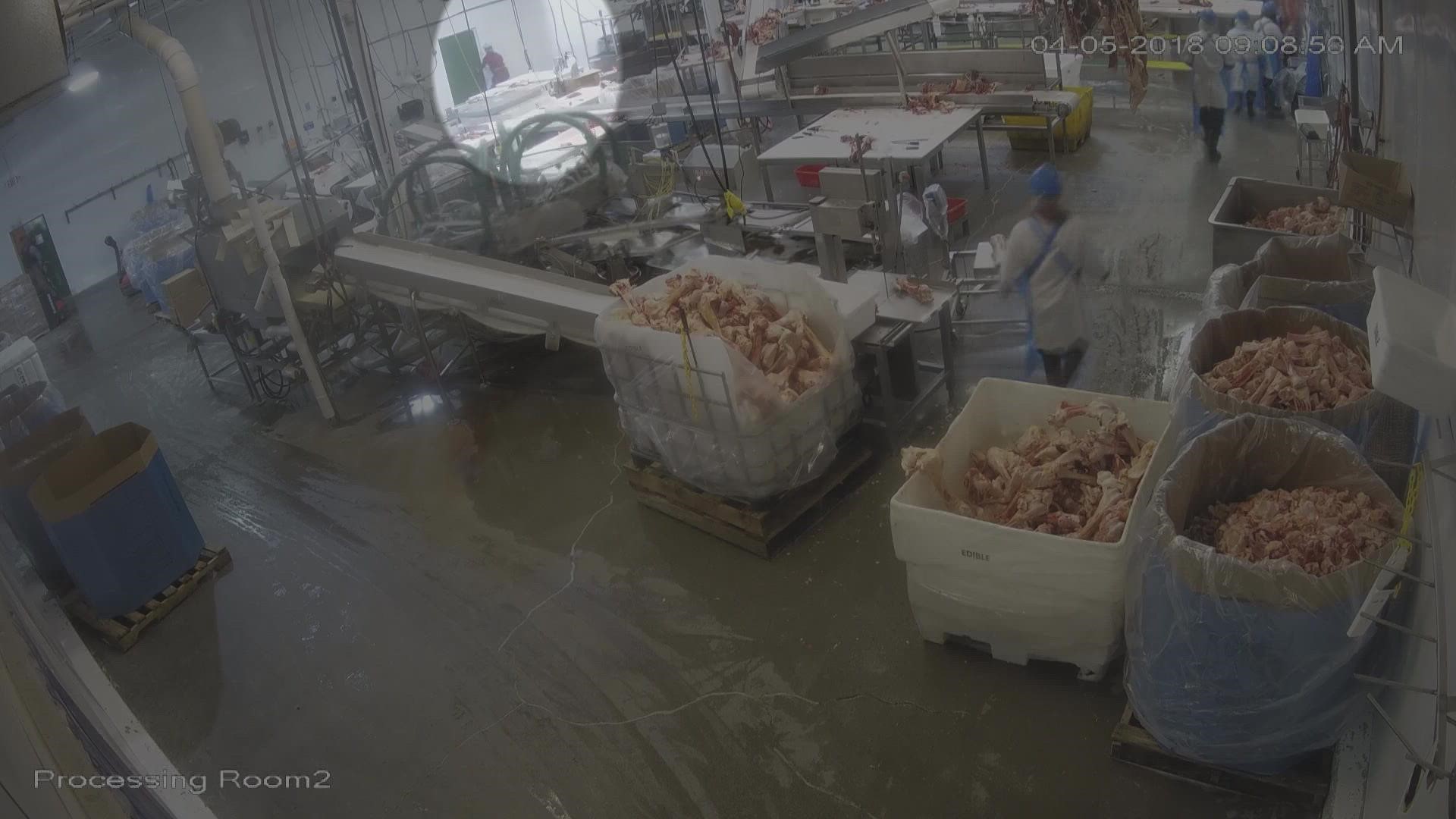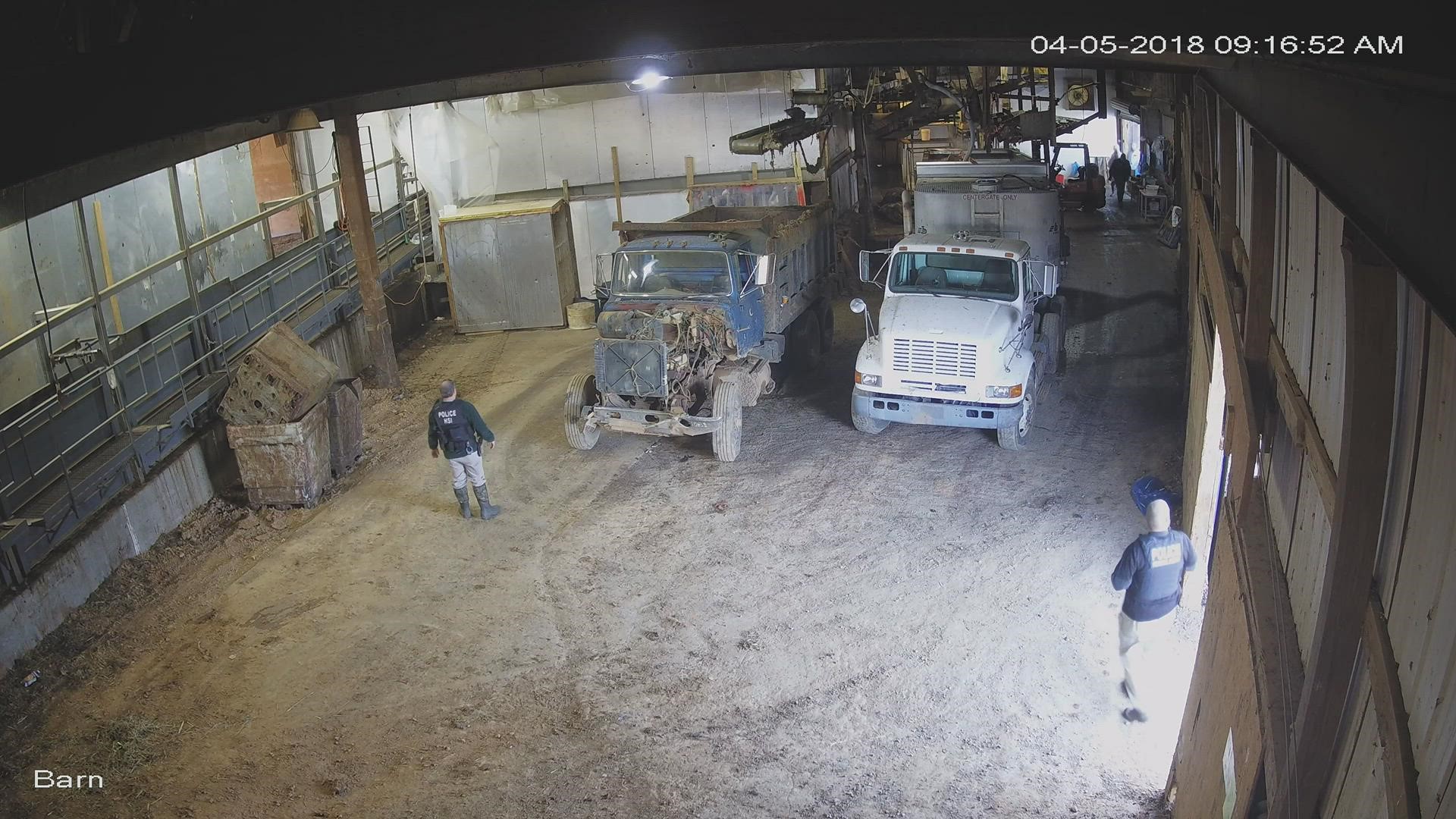BEAN STATION, Tenn. — In April 2018, around 100 people were detained during a raid by immigration agents at a Grainger County meatpacking plant. Since then, many people left the U.S. and several were deported.
It happened at the Southeastern Provisions Plant located between Bean Station and Rutledge. The loss of so many workers reverberated across Grainger County since agricultural workers said in 2019 that they lost a crucial way to sell cull cows.
Spanish Version: Juez federal decide desvelar videos de redada de inmigración de 2018 en planta empacadora de carne en Bean Station
That same year, two brothers who worked for the plant's owner pled guilty to hiring undocumented workers. In 2020, a settlement was also reached in a lawsuit against the plant over unpaid wages.
On Friday, a federal judge ruled that videos of the raid should be unsealed for the public to view. Plaintiffs said that during the raid, law enforcement agents violated federally protected rights by using excessive force.
WBIR 10News obtained the unsealed videos of the raid on Friday, which you can watch below.
The plaintiffs said part of the video shows an agent pinning a man down, punching him three times and putting his foot on the man's neck.
Attorney Don Bosch has represented law enforcement in use of force cases.
"I think any agency, and frankly, any court would likely find that to be a use of excess force," Bosch said.
The plaintiffs also organized a class action lawsuit against individual law enforcement agents and the U.S. on behalf of all the Latino workers detained during the raid.
One agent was specifically named by the plaintiffs — John Witsell. The Office of Professional Responsibility of the Department of Homeland Security investigated his arrest of a Latino worker, captured on video by a security camera. The defendants previously asked for the video to be sealed and to redact a paragraph that described events in it from a report.
Defendants claimed that it could "incite civil unrest, taint the jury pool, and invite condemnation of the agents." They also said that since a written description of the video was filed in the case, "the public's right to know what is in the arrest video has already been satisfied."
The judge said that their reasoning to seal the video was speculative and conclusory. He also said that they did not provide enough evidence to support their concerns.
"There has been public interest in this particular case—a number of media/journalism outlets have published stories about the raid, and it appears that there has been a peaceful demonstration," the judge said in the ruling. "But a few news stories and one peaceful demonstration do not constitute civil unrest."
The plaintiffs were ordered to file briefs, exhibits, and documents regarding the raid in the public record within a week. They will need to redact personal information in the documents.
The ICE raid attracted national attention. A documentary about the raid was produced by Netflix, highlighting the emotional impact after families were traumatized and the work faith-based organizations did to keep the community together.


